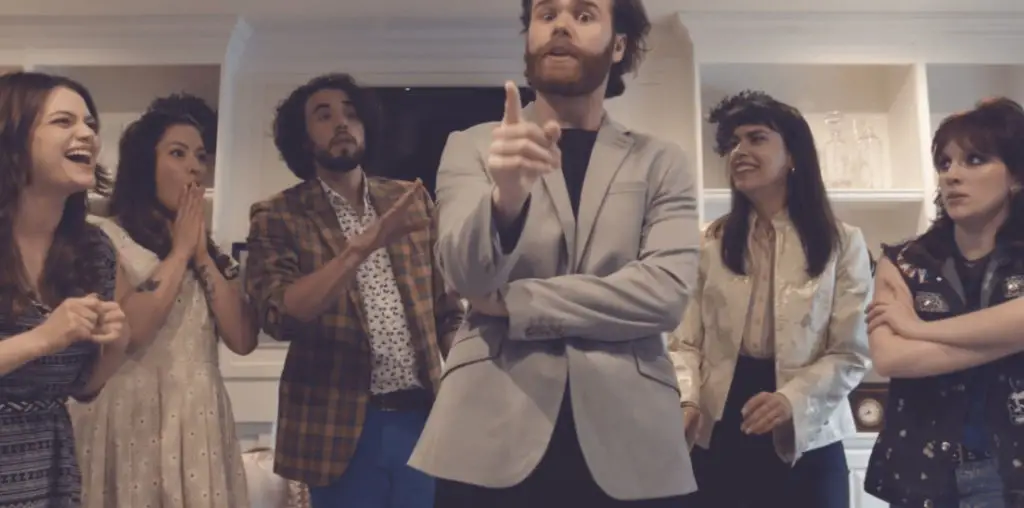
To reduce the catalog of a great artist into a catchy sentence that’s mostly true, Leonard Cohen’s music fluctuated between sexual love and spiritual love, sometimes within a single song. He was part ladies’ man, part holy man, and all ramblin’ man. That last part seems to be a burden that most creatives bear—the search for some higher satisfaction, which is exacerbated by success, rather than satiated. Before he was clotheslined by success, Leonard’s search led him to Hydra, a Grecian island that came to house one of those artistic communities of expatriates that are simultaneously energizing and sad. Being an unemployed writer is only romantic if the future is kind.
On this island, Leonard met and fell for Marianne Ihlen, a free-spirited woman more so following the separation from her husband. As Leonard worked on his poetry and prose, Marianne assumed the ancient role of muse and, if Leonard’s early output is any indication, was quite good at it. Unlike the romances that make up most films—more fantasy than any battle between orcs and humanoid trees—Leonard and Marianne’s has no clear progression. After Leonard’s career as a poet/novelist stagnates, he alters course and catches the headwind of a new literary trend in pop music. At this point, Leonard goes from living with Marianne for six months out of every year to a couple of days out of every year. As strained as their relationship becomes, it never fully breaks, and even culminates in a cynic-proof moment of poignancy, caught on camera and present in the movie.

“As Leonard worked on his poetry and prose, Marianne assumed the ancient role of muse…”
That movie is Marianne & Leonard: Words of Love, directed by Nick Broomfield, which does a remarkable job of wrapping its arms around Leonard and Marianne’s amorphous love story. Taking on the melancholy, rain-tapping-a-window tone of Leonard’s music, Broomfield doesn’t try to draw a line through the story artificially but embraces the natural disorder of real life. He emphasizes the character of Leonard and Marianne—or, in a larger sense, the dynamic relationship between artist and muse. By doing so, we’re able to coherently follow the relationship and even make some sense of it, which wouldn’t be possible by simply leapfrogging from moment to moment.
It is difficult for those with the creation impulse to settle down with another person because the energy expenditure of creating is too great and leaves only scraps. Creation also requires a certain level of self-involvement and introspection, which is yet another barrier. Of course, there’s also the aforementioned search for that certain something that can only be felt but not conceived of, which sometimes leads to mind-altering drugs or Eastern religions, as it did for Leonard and so many musicians of that era. And yet, ironically, the dependency on the muse is just as firmly embedded in the artist identity, even though it goes against all its other impulses. Thankfully, the movie kicks around these ideas without ever explicitly addressing them or tying them into an overarching message. It’s more fun to arrive at your own conclusions, provided the trail is marked.

“…Broomfield doesn’t try to draw a line through the story artificially but embraces the natural disorder of real life.”
In addition to the Leonard and Marianne saga, much of the movie is dedicated to Leonard’s music career, which is obviously hard to ignore. During these portions, Marianne’s presence—or lack thereof—hangs over the proceedings like a living ghost, so it works with the larger narrative and isn’t just a trip down memory lane for fans. One of the more enjoyable stops on this trip is the making of “Death of a Ladies’ Man,” which was produced by Phil Spector. Leonard remembers the studio being filled with so many guns. You were “biting into revolvers in your hamburger.” There’s also the satisfaction of seeing the performances of Leonard’s later years, which sprang from disaster, yet are among his most uninhibited and powerful. With a song like “Bird on the Wire,” it’s as if he finally caught up with it.
“The Stranger Song” contains a lyric that goes, “it’s hard to hold the hand of anyone who’s reaching for the sky just to surrender.” That seems to approach the gist of Marianne and Leonard: Words of Love. But at the center of this universal tale of artists, muses, chaos, and creation, there’s the touching story of two people who love each other but find themselves on opposite sides of the solid yellow line. That’s where the movie gets you.
Marianne & Leonard: Words of Love (2019) Directed by Nick Broomfield. Starring Leonard Cohen, Marianne Ihlen, Aviva Layton, Julie Felix, John Simon, Ron Cornelius, Jan Christian Mollestad, Billy Donovan, Helle Goldman, John Lissauer, Richard Vick, Judy Collins.
9 out of 10 stars

